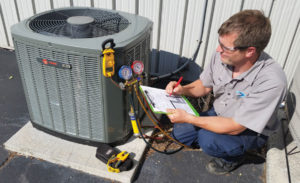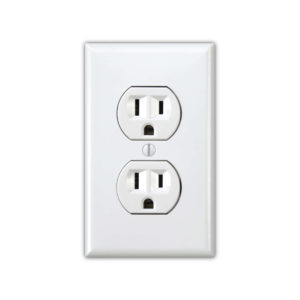When you are looking for a home, there are hundreds of factors that a homebuyer must consider. For this reason, buying a home has earned the reputation of being stressful and overwhelming; but, it shouldn’t be like that. You should look like the couple pictured above when you are home shopping. It’s supposed to be exciting! After all, you are hunting for the home that you will likely raise a family and build priceless memories in for the next 10 or more years.
Much of this stress that comes from buying a home can be alleviated by working with a good Realtor. If you work with someone you trust, you can be at peace in knowing that they will guide and advise you in the right direction. A good realtor knows your market and knows what to look for in a home to determine if it is a great deal or a money-pit.
Another thing you have in your favor is home inspections. Getting a home inspected leaves nothing to chance. The problem with home inspections is that they can be expensive. You really only want to get one to ensure that the home you have fallen in love with doesn’t have some unknown deal-breaking flaw like a bad foundation.
That is where this article comes in. By being an educated consumer, YOU can spot the red flags well before the need for an inspection to rule out all the bad eggs. This is one of your agent’s responsibilities too, but two sets of eyes are better than one. Especially when it comes to a high-priced asset like a home.
The list below will cover the most vital areas of a home where the most common and expensive problems can occur. These are things like the roof, plumbing, HVAC, electrical, insulation, etc. Knowing where to look can save you time and money in the process of finding your home and give you a peace of mind that is priceless.
1. Roof
The average lifespan of a roof is 20 – 30 years and the cost of a roof starts at $5000 and goes up depending on complexity and size. It is often easy to find out the age of the roof just by asking your agent. This is great to know because if the roof is 25 years you know that you will likely have to shell out some money in the next few years. An aged roof can be a great way to negotiate the price of a home.

2. HVAC
The HVAC is both simple and difficult to gauge the condition and age of. On one hand, the unit is usually located around the rear or side of the home and has a sticker on it that tells when it was built. The average lifespan of a HVAC unit is 15 – 20 years. If the unit reads 2004 or earlier, you may want to consider that as you negotiate on the home.

3. Plumbing
Plumbing, as well as the next few categories, is less easy to determine the condition and age of. Many times the age of the home is a good indicator of the age of the plumbing system. Because plumbing is imbedded within the walls and floors of a home, many homeowners don’t take the effort to replace the system unless a problem arises. If work has been done on the plumbing system, they are usually very proud to announce it on the listing sheet. If you are looking at a home built in 1970. It might be safe to assume that the plumbing is 49 years old. This isn’t always a bad thing, but is something to consider when comparing multiple homes.

4. Electrical
The Electrical system is something that you can assess by looking at the power box, the hardware and whether the lights work or not. When you view a home, ensure that the home has a modern breaker box. Old homes with fuse boxes are a good indicator that the electrical system is in need of replacement. Also, check the outlets. Are they three pronged? This is a good sign as old electrical systems used two prong outlets. Last, do the lights work? You may not be able to check if the home is vacant and the power is off, but you will find out for sure when the inspector comes because the power and water must be on for his/her inspection.

5. Foundation
The Foundation of a home is really up to the inspector to assess. More often than not, there aren’t foundational problems, but it does come up. Though you probably wont be crawling under the house to inspect the foundation, you can search for major low spots, slopes or dips in the flooring of the home as you walk around the home. If a home seems like it has good bones, it probably does. Even if you do find some dips, homes settle as they age and as long as the inspector doesn’t find something serious, it is just character!

6. Comps
This is a huge value that a good agent brings to the table. Comps are similar homes close to the subject home that have sold recently. So, whenever you express serious interest in a property, a good agent will perform a CMA which consists of multiple comps to find a very close approximation of the market value of the home. This is important because it is a known fact that some people want too much for their home. You don’t want to overpay just because you didn’t know any better. Good comps can be a great way to negotiate too. Bringing up similar properties close by that have sold recently can justify your offer when it comes time to negotiate.

Click “Home Search” or “Contact Us” below to start searching for homes and put this new knowledge into action!
Thanks for reading! If you enjoyed the article, please leave a reply below. Stay tuned for more articles like this one!
Sincerely,
| |||||||||||||




